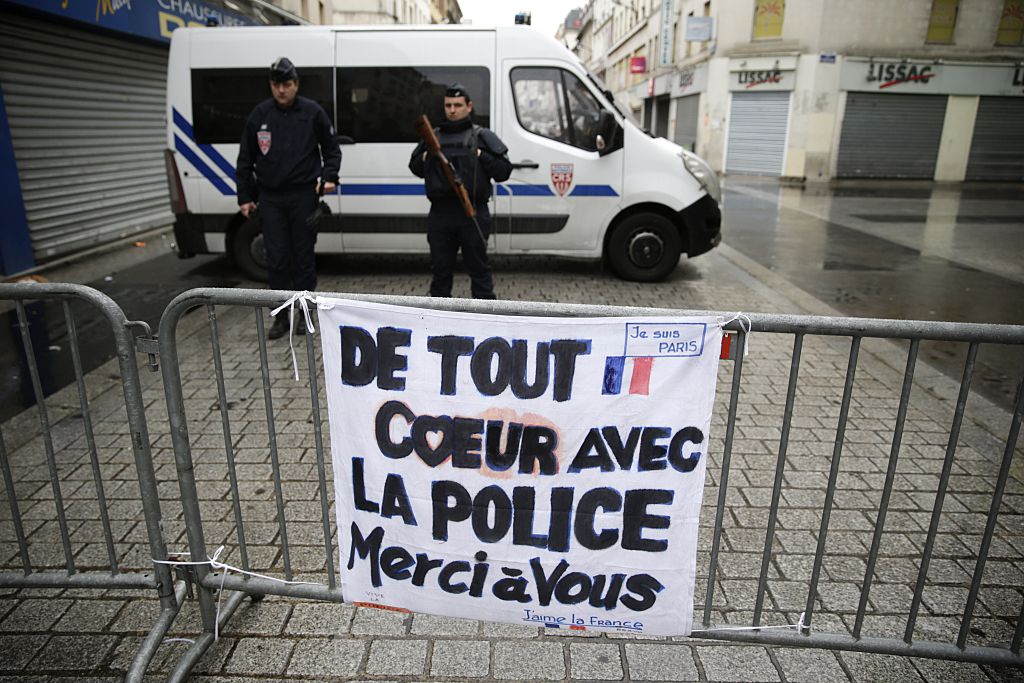France tracked down Paris attack ringleader through carelessly discarded cellphone


A free daily email with the biggest news stories of the day – and the best features from TheWeek.com
You are now subscribed
Your newsletter sign-up was successful
After the Nov. 13 terrorist attacks in Paris, French officials quickly fingered Abdelhamid Abaaoud, 28, as the ringleader, but they believed the Belgian-Moroccan Islamic State commander was in Syria. Then on Monday, France got a tip from a "non-European country" that he had slipped into Europe through Greece, French Interior Minister Bernard Cazeneuve said Thursday. French police tracked Abaaoud down to an apartment in Saint-Denis, a 15-minute walk from one of the attack sites, and he was killed in a violent raid Wednesday morning.
The big break that led police to Saint-Denis and Abaaoud was what The Washington Post calls "a diamond in the trash," a cellphone that one of the attackers had thrown in a wastebasket outside the Bataclan concert hall before he and two fellow terrorists went in and killed 89 people. The phone contained a text message sent to somebody French officials believe was Abaaoud about the time the attack started, saying: "It's on. We're starting." The phone's geolocation services also led to one of the attacker's hideouts in Paris, The New York Times reports, and according to The Associated Press, it had contact information for Hasna Aitboulahcen, a woman linked to Abaaoud who blew herself up in Wednesday morning's raid.
France wiretapped Aitboulahcen's phone, and while she did not speak to Abaaoud, she did get a call telling her that her "cousin" was coming. ("Police do not believe that Abaaoud was in fact related to Aitboulahcen," The Washington Post says, "but the police source said that the caller referred to him that way.") Moroccan authorities also reportedly helped lead police to the apartment.
The Week
Escape your echo chamber. Get the facts behind the news, plus analysis from multiple perspectives.

Sign up for The Week's Free Newsletters
From our morning news briefing to a weekly Good News Newsletter, get the best of The Week delivered directly to your inbox.
From our morning news briefing to a weekly Good News Newsletter, get the best of The Week delivered directly to your inbox.
It's not clear how Abaaoud died — caught in Aitboulahcen's suicide blast, shot by a French police sniper — but his death is a big deal for Europe's anti-terrorism effort. Abaaoud had risen from menial recruit to an "emir of war" after joining ISIS in early 2014. Entrusted with setting up terrorism cells in Europe, he was humiliated when Belgian police foiled his first attempted assault and killed two comrades in Verviers, and Cazeneuve said Abaaoud was involved in four more failed terrorism plots in Europe since the spring, including the assault on a high-speed train stopped by American tourists. With Abaaoud dead, Europe now has to figure out how to mend the gaping holes he exposed in its immigration and intelligence operations.
A free daily email with the biggest news stories of the day – and the best features from TheWeek.com
Peter has worked as a news and culture writer and editor at The Week since the site's launch in 2008. He covers politics, world affairs, religion and cultural currents. His journalism career began as a copy editor at a financial newswire and has included editorial positions at The New York Times Magazine, Facts on File, and Oregon State University.
-
 Political cartoons for February 14
Political cartoons for February 14Cartoons Saturday's political cartoons include a Valentine's grift, Hillary on the hook, and more
-
 Tourangelle-style pork with prunes recipe
Tourangelle-style pork with prunes recipeThe Week Recommends This traditional, rustic dish is a French classic
-
 The Epstein files: glimpses of a deeply disturbing world
The Epstein files: glimpses of a deeply disturbing worldIn the Spotlight Trove of released documents paint a picture of depravity and privilege in which men hold the cards, and women are powerless or peripheral
-
 Nobody seems surprised Wagner's Prigozhin died under suspicious circumstances
Nobody seems surprised Wagner's Prigozhin died under suspicious circumstancesSpeed Read
-
 Western mountain climbers allegedly left Pakistani porter to die on K2
Western mountain climbers allegedly left Pakistani porter to die on K2Speed Read
-
 'Circular saw blades' divide controversial Rio Grande buoys installed by Texas governor
'Circular saw blades' divide controversial Rio Grande buoys installed by Texas governorSpeed Read
-
 Los Angeles city workers stage 1-day walkout over labor conditions
Los Angeles city workers stage 1-day walkout over labor conditionsSpeed Read
-
 Mega Millions jackpot climbs to an estimated $1.55 billion
Mega Millions jackpot climbs to an estimated $1.55 billionSpeed Read
-
 Bangladesh dealing with worst dengue fever outbreak on record
Bangladesh dealing with worst dengue fever outbreak on recordSpeed Read
-
 Glacial outburst flooding in Juneau destroys homes
Glacial outburst flooding in Juneau destroys homesSpeed Read
-
 Scotland seeking 'monster hunters' to search for fabled Loch Ness creature
Scotland seeking 'monster hunters' to search for fabled Loch Ness creatureSpeed Read
